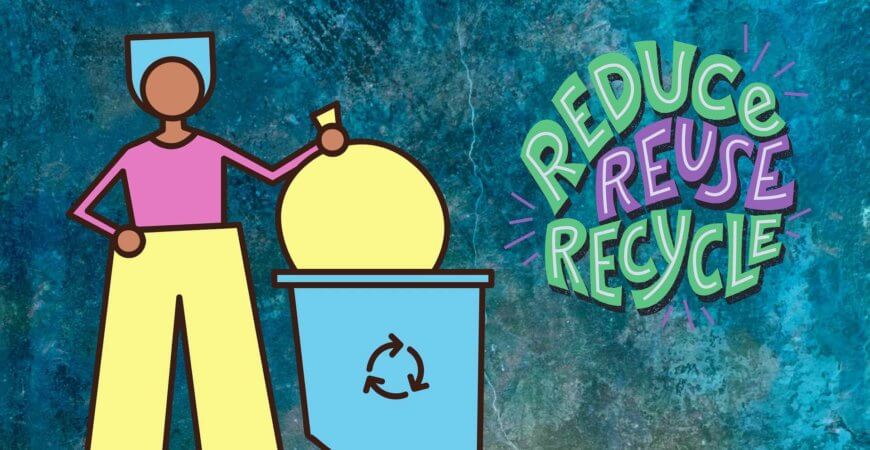

What is recycling construction waste? Everything You Need To Know
Even a relatively small construction project generates a lot of waste. And when you consider how many construction projects are carried out every single day around the world, the amount of waste becomes difficult to even imagine. However, it’s important to note that just as many of the things we throw away in our households can actually be recycled and reused, the same holds true for construction, demolition, and excavation waste.
Implementing proper construction waste management solutions across the industry offers many financial and environmental benefits. What are these benefits? Let’s take a closer look at this subject in the article below!
Basic Facts About Construction Waste Management
- Construction waste management must comply with national and local laws and regulations, and construction companies are legally required to ensure proper waste disposal.
- It’s estimated that around 62% of waste generated in the UK in 2018 came from construction, demolition, and excavation sites.
- Most of the non-hazardous construction and demolition waste in the UK is recovered (with a recovery rate of 92.3% in 2018).
Why Is Construction Waste Recycling Important?
- Less waste sent to landfills. By reusing materials, the construction, demolition and excavation industry can significantly reduce the amount of waste from construction sites that ends up in landfills.
- Meeting legal requirements for waste management. Businesses are responsible for managing waste generated due to their work. Even if recycling specific materials is not among such requirements, it can still help companies ensure that their waste is disposed of properly.
- Conserving natural resources. Recycling waste in demolition and construction industries is an easy way to reduce the need for mining new materials.
- Fewer emissions and lower costs. Extracting and processing raw materials require more energy than recycling or repurposing materials found in construction and demolition waste. This makes recycling more eco-friendly and cheaper.
- Building an environmentally-friendly brand image. Nowadays, many environmentally conscious customers prefer working with companies that share the same values. Potential clients will see it as a big benefit if your business can boast proper waste management solutions and a high recycling rate.
Types of Construction Waste
Construction and demolition works generate many different types of waste. And while many of them can be recycled and recovered, it’s important to know how to segregate, store and dispose of different materials. Common types of construction waste include:
- inert waste (e.g., concrete waste, bricks, asphalt, stones, soil),
- hazardous waste (e.g., asbestos, paints, solvents),
- metallic waste (e.g., pipes, steel construction elements),
- glass, plastic, and wood.
Construction Waste Recycling FAQ
How Can Construction Materials Be Recycled?
Everything depends on the type of construction materials you want to recycle. For example, concrete and asphalt waste can be processed and reused in the production of new products and materials, wood can be used in the furniture industry, and plastic or cardboard packaging of building materials can be segregated and recycled. Metals, e.g., steel or copper, are among the most commonly recycled materials on the planet and can be reused over and over again, without losing their properties and strength.
What Is Recycling in Construction?
Recycling in the construction industry enables companies to manage waste more efficiently. It prevents recoverable materials from being sent to landfills along with the rest of the waste from construction and demolition projects.
Why Do We Recycle Construction Waste?
Recycling construction waste offers many benefits, from reducing the use of landfills and CO2 emissions to conserving natural resources. By properly separating and processing materials, e.g., different types of metals, they can be reused in manufacturing and construction, which is cheaper and more energy efficient than mining new ores.
How Do Builders Dispose of Construction Waste?
Businesses in the UK are legally required to manage and properly dispose of any waste they generate. Waste management plans implemented by construction and demolition companies should follow the waste management hierarchy, which means they should take steps to reduce, reuse and recycle waste first before disposing of non-recoverable waste.
Hire Scrap Metal Collection Services in London!
At Trans Metal, we offer fast and reliable scrap metal collection services from both private properties and construction sites in London. Contact us to learn more about our services and arrange a scrap metal pickup!
